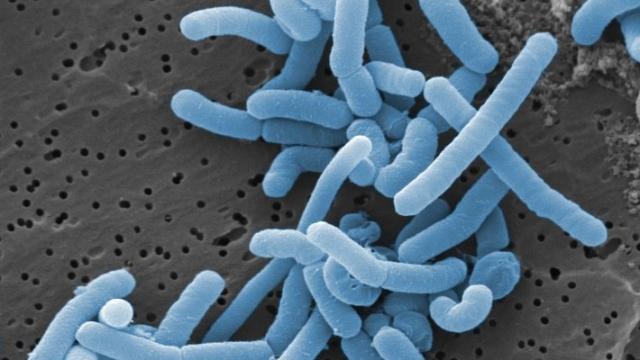Scientists say they’ve for the first time conducted an extensive analysis of the bacteria that live in the human vagina. And they seem to have found plenty of surprises.
In recent years, much has been made of the gut microbiome: the unseen, symbiotic world of bacteria and other microorganisms that live in our digestive system. But bacteria live everywhere in and on the human body, including in the vagina.
As with the gut microbiome, researchers suspect that a balanced vaginal microbiome is essential to health in general. It likely plays a key role in preventing sexually transmitted diseases and urinary tract infections, and it may make it easier for women to get pregnant. Bacterial infections of the vagina, meanwhile, disrupt the microbiome and have been linked to a greater risk of premature birth, chronic inflammatory disorders, and a greater risk of other infections.
Research on the vaginal microbiome has so far suggested that it’s a lot less diverse than the gut microbiome, with fewer distinct species of bacteria living there. But the authors of a new study out today in Nature Communications say they’re the first to have created a massive genetic catalogue of the vaginal microbiome.
[referenced url=” thumb=” title=” excerpt=”]
To create their map, the researchers analysed hundreds of vaginal “metagenomes”—which are the sum totals of all genetic material from a sample, whether they come from humans, bacteria, or viruses. From this soup of DNA, they isolated nearly a million non-redundant, unique genes that likely belonged to bacteria. They used these genes to identify distinct groups of bacteria. The catalogue was then used to analyse more than 1,700 other metagenomes. Altogether, the study involved bacteria taken from women all over the world, from North America, Africa, and Asia.
To no surprise, they found relatively few species of bacteria that regularly live in the vagina, around 300 or so (the gut microbiome probably has over a thousand). But according to lead study author Jacques Ravel, a microbiologist and genomics researcher at the University of Maryland School of Medicine, there were plenty of differences on the genetic level within a species itself.
“There’s a lot more diversity among strains of a bacteria, meaning woman can carry genes from one bacteria that are a lot different than someone else’s.” Ravel told Gizmodo via phone. “So within a woman’s microbiome, even if it’s dominated by one species of bacteria, it’s many strains of that species that build a little community, each one contributing something to the function of that community.”
If that’s the case, Ravel added, then a healthy vaginal microbiome isn’t just about having the right mix of bacterial species, but the right mix of strains of a bacteria. And that’s important to know if we ever want to find a way to balance out an out of whack microbiome.
Right now, doctors and researchers are already conducting clinical trials that help people reset their dysfunctional gut microbiome, usually via a faecal transplant. But we’re still in the earliest stages of figuring out how to do the same for the vaginal microbiome.
Some scientists have theorised that people can simply take oral probiotics, but that won’t probably work, Ravel said, since it would be a long journey for the bacteria to survive and reach the vagina (the bacteria would need to make it to the rectum, then the vagina, and still be in good enough shape to colonise it). Others have shown early success with transplanted secretions taken from donors that are applied vaginally, but that method could come with added safety concerns, similar to faecal transplants.
Ravel and his team instead think they can use their catalogue and other research to create “living medicine” treatments that provide the optimal combination of bacterial strains to women whose microbiomes have gone awry. Last year, he and others co-founded the biotech company Luca Biologics, spun off from his lab at the University of Maryland. They plan to develop treatments for recurrent UTIs, bacterial infections of the vagina, and premature birth. Research-wise, they also plan to study how the microbiome can affect women’s risk of sexually transmitted diseases.
“We’ve learned a lot from this about what the microbiome should be,” Ravel said. “And moving forward, hopefully we can put these ideas into practice and develop interventions for improving women’s health.”
